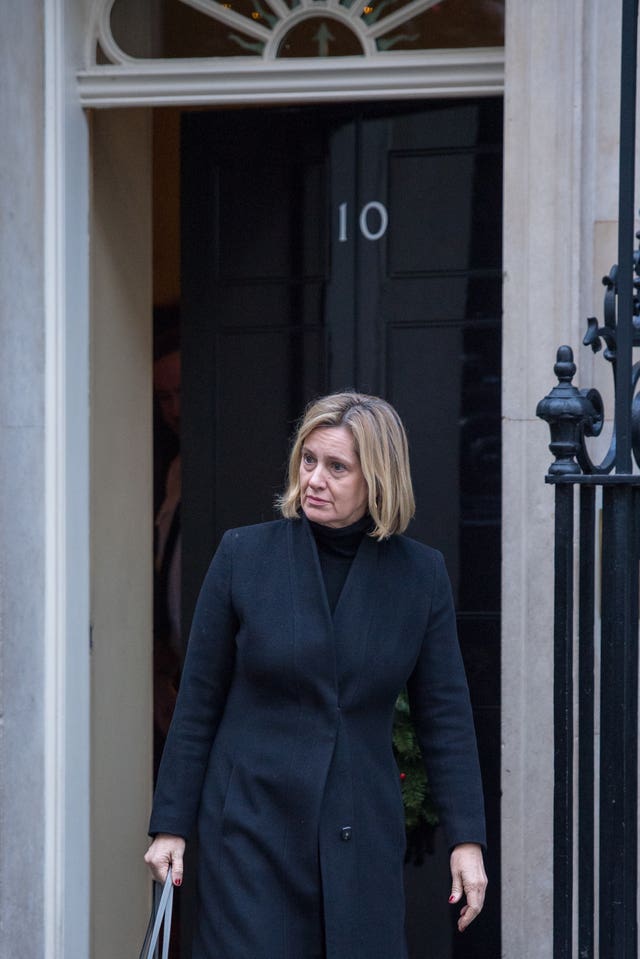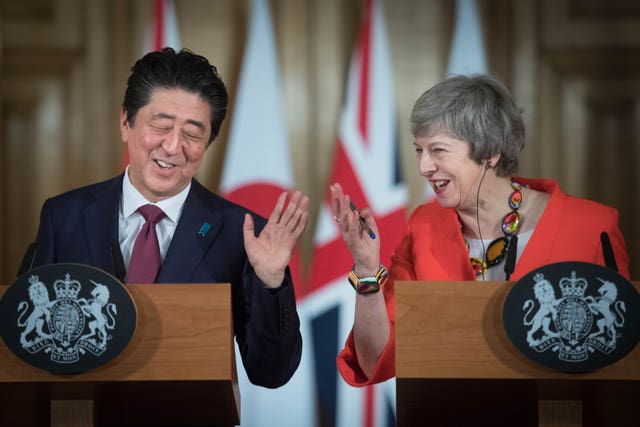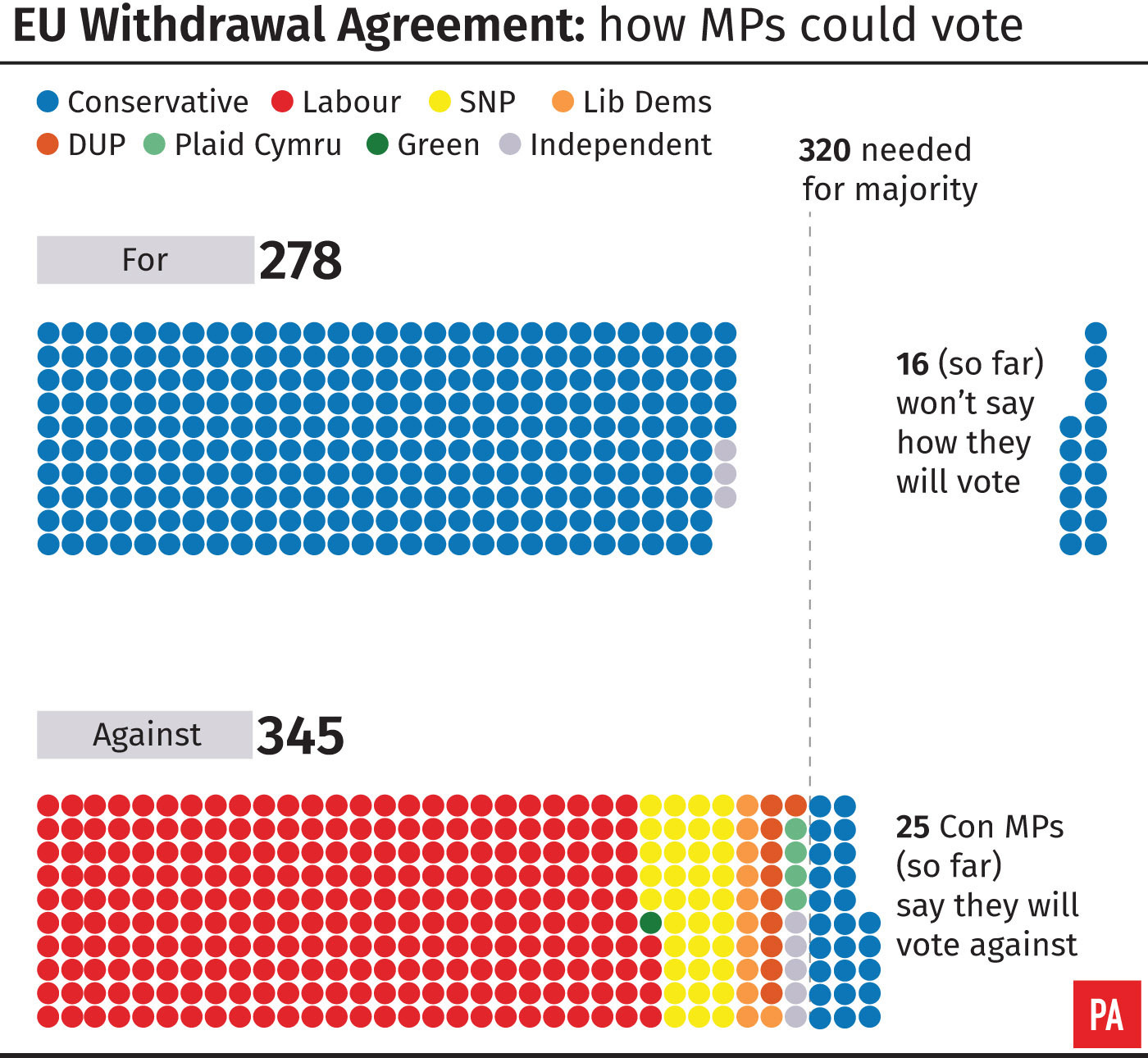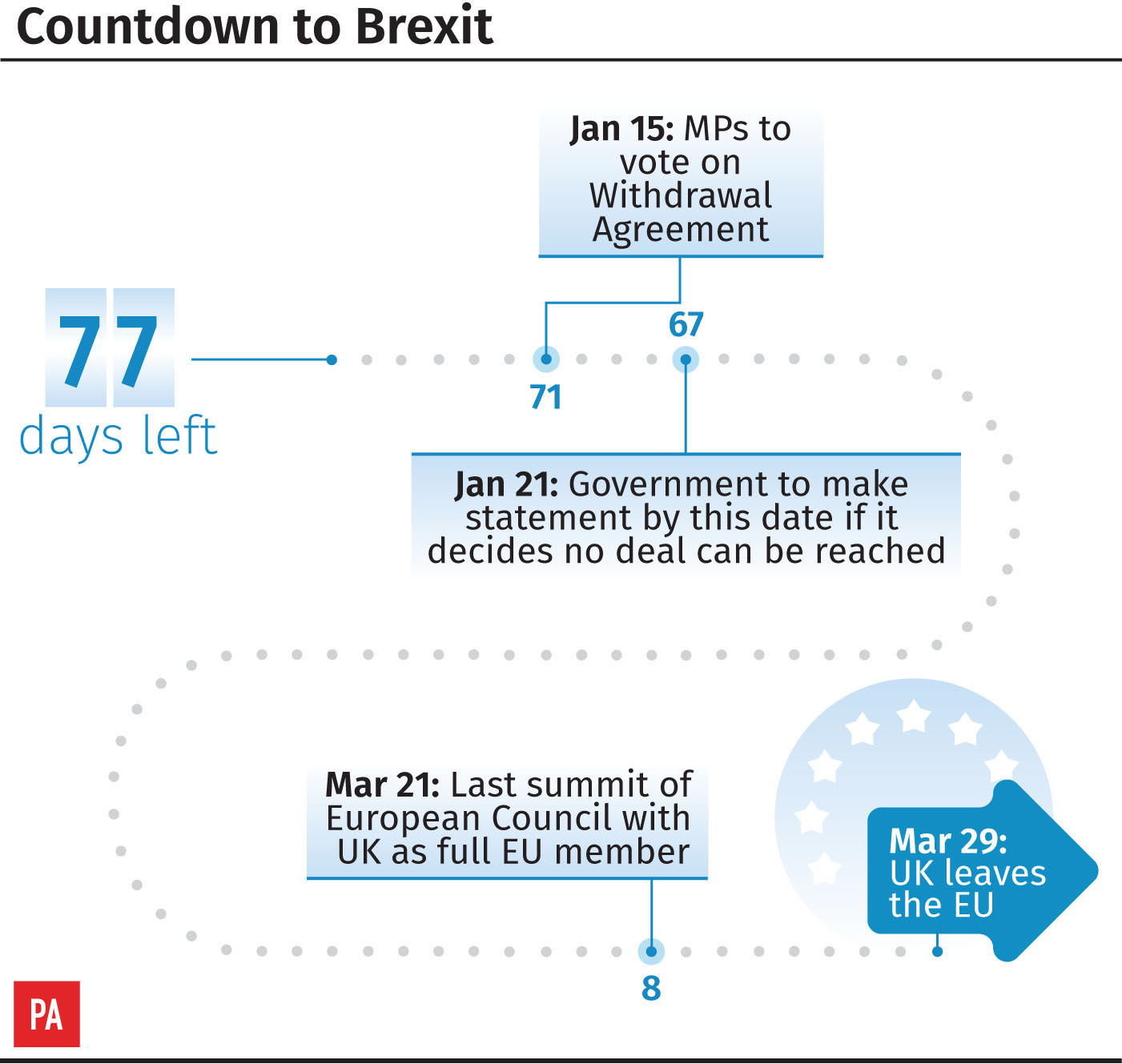Amber Rudd ‘committed’ to avoiding no-deal Brexit
The Cabinet minister declined three times to say whether she would quit if the Prime Minister opted for EU withdrawal without a deal.

A senior Cabinet minister has said she is “committed” to ensuring that the UK does not leave the European Union without a deal.
During an interview with BBC Radio 4’s Today programme, Work and Pensions Secretary Amber Rudd three times declined to say whether she would remain a member of the Government if it opted for a no-deal Brexit.
Ms Rudd was speaking as MPs prepared for the third day of debate in the House of Commons ahead of the crunch vote on Theresa May’s Withdrawal Agreement next Tuesday, with Home Secretary Sajid Javid opening proceedings which are expected to be dominated by the issue of migration.

Mrs May was boosted on Thursday by two Tory backbenchers – her former policy adviser George Freeman, and Trudy Harrison – indicating they will back her deal, as well as by a call from Japanese PM Shinzo Abe for the UK to avoid no-deal.
And the Prime Minister made efforts to reach out to Labour and the unions in an 11th-hour bid to salvage a vote which she is expected to lose by a wide margin.
Asked whether she agreed with Cabinet colleague Jeremy Hunt that the UK can thrive after a no-deal Brexit, Ms Rudd told Today: “This is a strong and great country, we will find a way to succeed, but I do not think that no deal would be good for this country and I’m committed to making sure we find an alternative.”
Ms Rudd said it was “right” for the Government to make preparations for a no-deal Brexit, comparing it to wearing a seatbelt when driving a fast car.
But she said: “I intend to work with colleagues to make sure we avoid it. I am committed to getting the best outcome for this country, which is supporting the Prime Minister’s deal.”
Pressed for a third time by interviewer Justin Webb on whether she would quit if Mrs May went for the no-deal option, Ms Rudd cut him short by saying: “Thank you very much, Justin.”

Downing Street said the Prime Minister had “constructive” phone conversations about her Brexit deal on Thursday with trade union big beast Len McCluskey of Unite, a Brexit supporter and close confidant of Labour leader Jeremy Corbyn, as well as Tim Roache of the GMB.
Number 10 also confirmed that ministers would “consider very seriously” moves by Labour MPs to safeguard workers’ rights after Brexit in an attempt to win support for her deal, if the backbench amendment was selected by the Speaker.
The amendment would keep EU rules on pay and conditions, health and safety issues, and environmental standards.
However senior opposition figures rowed back against the overtures, saying it was too little, too late.
Mr Corbyn said Labour did not “endorse or accept” the initiative, backing union leaders including the TUC’s Frances O’Grady, who said the amendment “makes no change to a bad deal for working people’s jobs and rights”.
And one of the union leaders who spoke with Mrs May said afterwards that he remained in favour of extending Article 50 to allow a second referendum.

Mr Roache said: “After nearly three years I’m glad the Prime Minister finally picked up the phone.
“As you would expect, I was very clear about GMB’s position, the deal on the table isn’t good enough and non-binding assurances on workers’ rights won’t cut it.
“If the deal genuinely did the job for GMB members, our union would support it, but it doesn’t.”
Shadow foreign secretary Emily Thornberry later on Thursday hit out at Tory figures putting out feelers on workers’ rights in a bid to get a Brexit consensus.

Appearing on the BBC’s Question Time, she accused the Government of treating the issue as an “afterthought” by attempting to discuss it at such a late stage.
She said: “It would be fundamental to what we were doing and we would have it as part of the law that our rights would be in pace with Europe.
“For the Tories to come back at the last minute and go ‘Oh yeah, you know that thing about workers’ rights? Well, you might be able to have the same rights as they have in Spain’, it just shows the fundamental difference of approach to this.”





